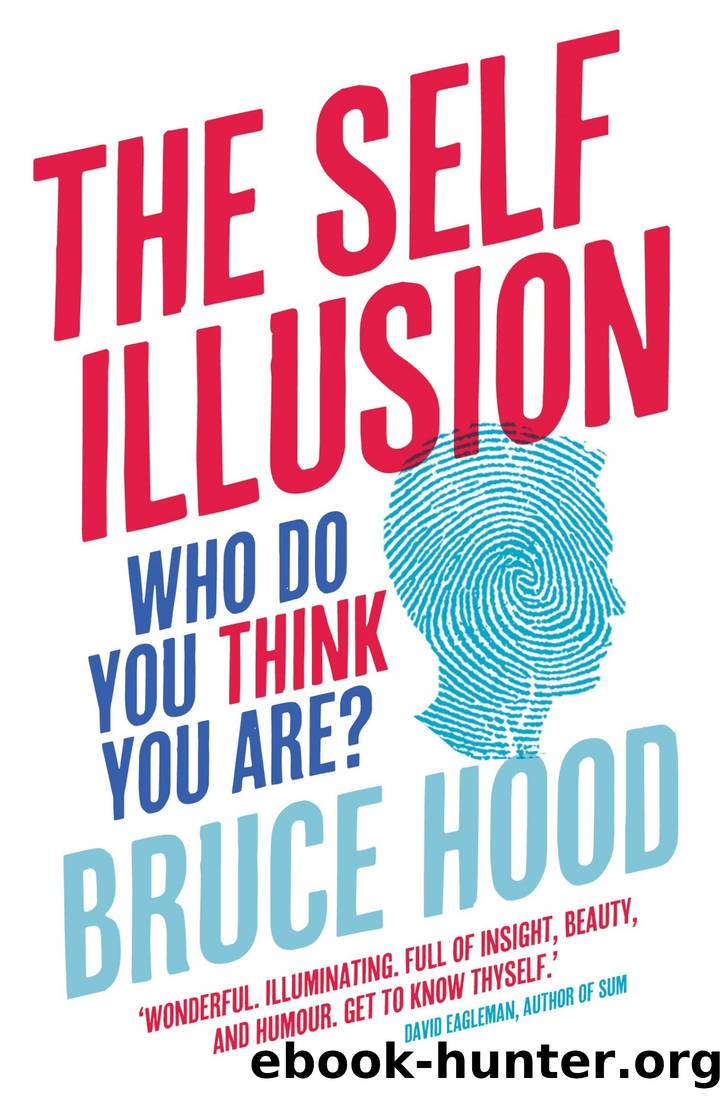The Self Illusion by Bruce M. Hood

Author:Bruce M. Hood [Hood, Bruce M.]
Language: eng
Format: epub
Tags: psychology, Science, Philosophy, Self Help
ISBN: 9781780330075
Goodreads: 18194458
Publisher: Constable
Published: 2011-01-01T00:00:00+00:00
Relativity in the Brain
Dan Ariely is a behavioural economist from Duke University who makes the argument that humans are not only poor at risk analysis but they are, in fact, predictably irrational.21 This occurred to him when he was browsing the web and found an advert for magazine subscriptions to the Economist, which had three yearly options: one, online only at $59; two, print only at $125; and, three, online and print for $125.
Clearly, the best offer was option three where you get both online and print versions for the same price as just the print alone. When he tested this offer on his students, he found that 84 per cent said they would choose option three and 16 per cent would choose option one. No one chose option two. Youâd have to be crazy to choose only the print version when you could also have the online version for no extra cost. But this was a deliberate strategy by the Economist to make option three look more attractive by comparing it with a decoy. When Ariely removed option two and gave them the choice again, this time 68 per cent choose option one and only 32 per cent went with option three. The decoy had distorted the studentâs sense of value. Notice how easy the decision was swayed by the context.
Ariely points out that this is the problem of relativity â humans do not make judgements in absolute values but rather in relative terms. We are always weighing up the costs and benefits of different choices and estimate values accordingly. This also explains why people tend not to choose the cheapest or most expensive option, but the one in the middle. The top price is really a decoy. This strategy is sometimes known as the Goldilocks effect, after the fairytale of the little girl who discovers that she prefers the porridge that is not too hot and not too cold. The preference for the midrange price is why retailers often have an expensive option to increase the likelihood of customers choosing a product that costs less but is not the cheapest. Relativity in decision-making reveals that we do not have an internal value-meter that tells us how much things are worth. Rather, our decisions are shaped by the external context.
Relativity does not just apply in economic decision-making but is, in fact, a fundamental principle of how our brains operate. Everything we experience is a relative process. When something seems hotter, louder, brighter, smellier or sweeter, that experience is one of relative judgement. Every change in the environment registers as a change in neural activity. At the very basic level of neural connections, this is registered as the relative change in the rate of impulses firing. In the early experiments in which scientists recorded the electrical activity of a single neuron, they inserted an electrode to measure the electrical impulses of the cell and played it through loudspeakers. When inactive, one could hear the occasional click of the background activity of the neuron as the occasional impulse was triggered.
Download
This site does not store any files on its server. We only index and link to content provided by other sites. Please contact the content providers to delete copyright contents if any and email us, we'll remove relevant links or contents immediately.
The Art of Thinking Clearly by Rolf Dobelli(10489)
The 5 Love Languages: The Secret to Love That Lasts by Gary Chapman(9815)
Mindhunter: Inside the FBI's Elite Serial Crime Unit by John E. Douglas & Mark Olshaker(9343)
Becoming Supernatural by Dr. Joe Dispenza(8217)
Nudge - Improving Decisions about Health, Wealth, and Happiness by Thaler Sunstein(7707)
The Road Less Traveled by M. Scott Peck(7603)
Mastermind: How to Think Like Sherlock Holmes by Maria Konnikova(7347)
Enlightenment Now: The Case for Reason, Science, Humanism, and Progress by Steven Pinker(7314)
Win Bigly by Scott Adams(7199)
The Way of Zen by Alan W. Watts(6614)
Factfulness: Ten Reasons We're Wrong About the World – and Why Things Are Better Than You Think by Hans Rosling(4742)
The State of Affairs by Esther Perel(4721)
Gerald's Game by Stephen King(4654)
Man's Search for Meaning by Viktor Frankl(4606)
The Confidence Code by Katty Kay(4261)
Thinking in Bets by Annie Duke(4227)
The Healing Self by Deepak Chopra(3580)
Hidden Persuasion: 33 psychological influence techniques in advertising by Marc Andrews & Matthijs van Leeuwen & Rick van Baaren(3565)
The Worm at the Core by Sheldon Solomon(3487)
